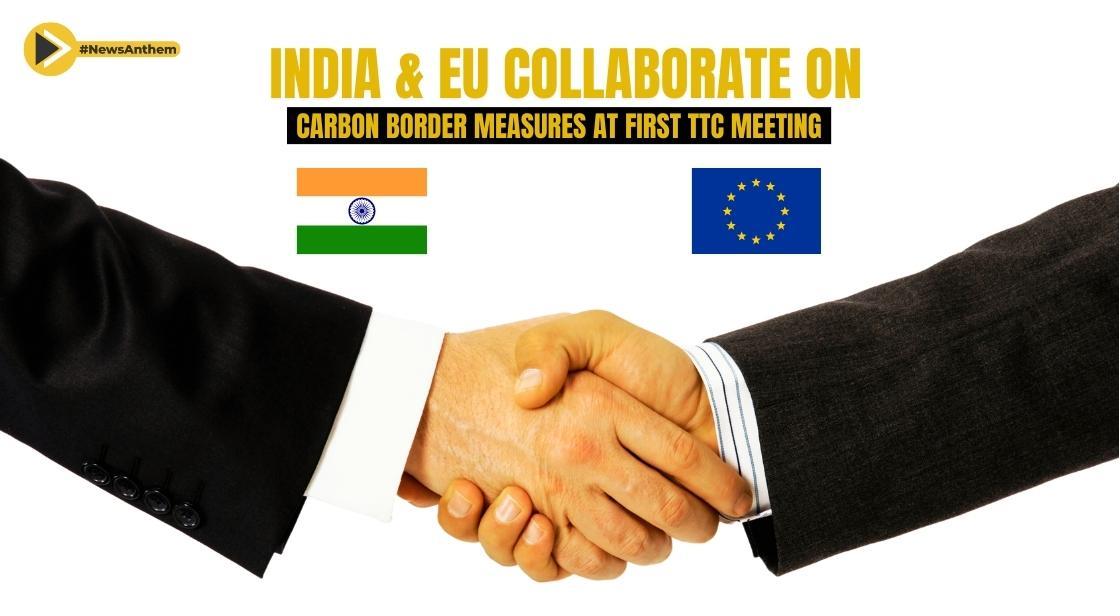India and EU Collaborate on Carbon Border Measures at First TTC Meeting

News Synopsis
Intensified Engagement and Finding Solutions for Implementing CBAM
India and the European Union have reaffirmed their commitment to working together to address the challenges associated with the implementation of the EU's carbon border adjustment mechanism (CBAM). At the first India-EU Trade and Technology Council (TTC) meeting held in Brussels, Commerce and Industry Minister Piyush Goyal emphasized the need to find the right solutions and ensure sustainability while implementing CBAM. The engagement between India and the EU aims to overcome potential trade barriers and ensure a collective effort in creating a better planet for future generations.
Concerns have been raised by India regarding the impact of CBAM, as it could lead to the imposition of levies on carbon-intensive imports. India sees this as an encroachment of environmental issues into trade matters, potentially affecting market access for EU's trading partners. European Commission Executive Vice-President Valdis Dombrovskis assured that the EU has taken care to align the carbon border measure with World Trade Organization norms, making it non-discriminatory.
The TTC meeting highlighted the importance of deepening engagement on carbon border measures, with the co-chairs planning to meet again in early 2024 in India to review progress and determine further actions. The establishment of the Trade and Technology Council in April 2021 aimed to address trade, trusted technology, and security challenges. The TTC includes three working groups focusing on strategic technologies, digital governance, digital connectivity, green and clean energy technologies, and trade, investment, and resilient value chains.
What is European Union ?
The European Union (EU) is a political and economic union consisting of 27 member states primarily located in Europe. It was established with the aim of promoting peace, stability, and economic prosperity among its member countries. The EU operates through a system of supranational institutions and intergovernmental decision-making, with the European Commission, European Parliament, and Council of the European Union being key bodies. The EU has developed a single market, known as the internal market, which allows for the free movement of goods, services, capital, and people within its borders. It also has a common currency, the euro, adopted by 19 member states. The EU plays a significant role in shaping policies on trade, agriculture, environment, security, and other areas of governance, and it represents its member states in international affairs.
ThinkWithNiche News' conclusion
The first meeting of the council resulted in agreements to collaborate on quantum and high-performance computing research and development projects, targeting climate change, natural hazards, bio-informatics, bio-molecular research, and drug development. Additionally, India and the EU will coordinate efforts within the Global Partnership on Artificial Intelligence and explore cooperation on responsible artificial intelligence, research, and innovation. The two sides will also work on strategic semiconductor sector policies and bridge the digital skills gap through the mutual recognition of certifications and the promotion of skilled professionals and talent exchange.
You May Like









